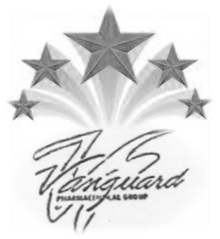The Coalition for Epidemic Preparedness Innovations (CEPI), on Friday, put out a call for new funding to support the development of a vaccine for COVID-19.
The organisation has confirmed that the additional funds would allow it to expand the number of vaccine candidates at the outset, as well as support clinical testing for these candidates, with the aim of having at least three that could be submitted to regulatory authorities for general use as well as use during outbreaks.
The coalition is already partnering with companies, including Moderna, Inovio Pharmaceuticals and GlaxoSmithKline in a bid to speed up development of a vaccine against the virus.
Further to this, Mologic – a rapid diagnostic technologies company – announced that it has been awarded circa £1 million by the Wellcome Trust and the Department for International Development (DFID), as part of the UK government’s £46 million international coronavirus (COVID-19) prevention and research funding package.
The funding will allegedly be used by Mologic and global partners, to develop a point-of-need diagnostic test for the virus, in addition to supporting the company to initiate research for novel vaccine candidates.
Dr Joe Fitchett, medical director, at Mologic, commented: “The COVID-19 outbreak is at a critical juncture, and to bring it to an end, we need next generation diagnostics for use at the point-of-need – at home or in the community, in limited and well-resourced settings.
Rapid detection of the virus is important to stop its spread – we are pleased that the UK government has acknowledged this, supporting Mologic and the work of our partners to prevent further outbreaks internationally.”
Analysts at RBC Capital Markets are also suggesting that Gilead’s remdesivir stands a 50% chance of success as a vaccine. The company is citing limited dosing results, confounding data and previous disappointments in Ebola, saying the “bar for success is likely very low, but we see at best 50/50 probability.”
Despite the uncertainty, RBC indicated that sales of remdesivir could potentially reach $80 million to $150 million in the near term, noting that intravenous administration of the drug will likely limit its use to severe cases requiring hospitalisation, while it is possible that the drug may also be stockpiled.



